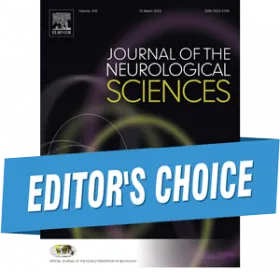
Image: iStockphoto.com
Authors: Rehman AU, Mohsin A, Cheema HA, Zahid A, Rehman ME, Ameer MZ, Ayyan M, Ehsan M, Shahid A, Rehman MA, Shah J.
Editor's Choice
Journal of the Neurological Sciences. 2022 Dec 29:120537
DOI: https://doi.org/10.1016/j.jns.2022.120537 ⧉
Highlights
- Assessed comparative efficacy and safety of tenecteplase and alteplase.
- 10 randomized controlled trials (RCTs) with 4140 participants.
- Tenecteplase at 0.25 mg/kg dose is more efficacious and equally safe as alteplase.
- Future RCTs should focus on direct comparison of tenecteplase dosages.
Studies on tenecteplase have been yielding mixed results for several important outcomes at different doses, thus hampering objective guideline recommendations in acute ischemic stroke management. This meta-analysis stratifies doses in order to refine our interpretation of outcomes, and quantify the benefits and harms of tenecteplase at different doses.
PubMed/MEDLINE, the Cochrane Library, and reference lists of the included articles were systematically searched. Several efficacy and safety outcomes were pooled and reported as risk ratios (RRs) with 95% confidence intervals (CIs). Network meta-analysis was used to find the optimal dose of tenecteplase. Meta-regression was run to investigate the impact of baseline NIHSS scores on functional outcomes and mortality.
Ten randomised controlled trials with a total of 4140 patients were enrolled in two groups for tenecteplase and alteplase. Tenecteplase at 0.25 mg/kg dose demonstrated significant improvement in excellent functional outcome at 3 months (RR 1.14, 95% CI 1.04–1.26), and early neurological improvement (RR 1.53, 95% CI 1.03–2.26). There was no statistically significant difference between tenecteplase and alteplase in terms of good functional outcome, intracerebral hemorrhage (ICH), symptomatic intracerebral hemorrhage (sICH), and 90-day mortality at any dose. Meta-regression demonstrated superior tenecteplase efficacy with increasing stroke severity, however, the results were statistically nonsignificant.
The authors found Tenecteplase at 0.25 mg/kg dose is more efficacious and at least as safe as alteplase for stroke thrombolysis and concluded that newer analyses need to focus on direct comparison of tenecteplase doses and whether tenecteplase is efficacious at longer needle times.








